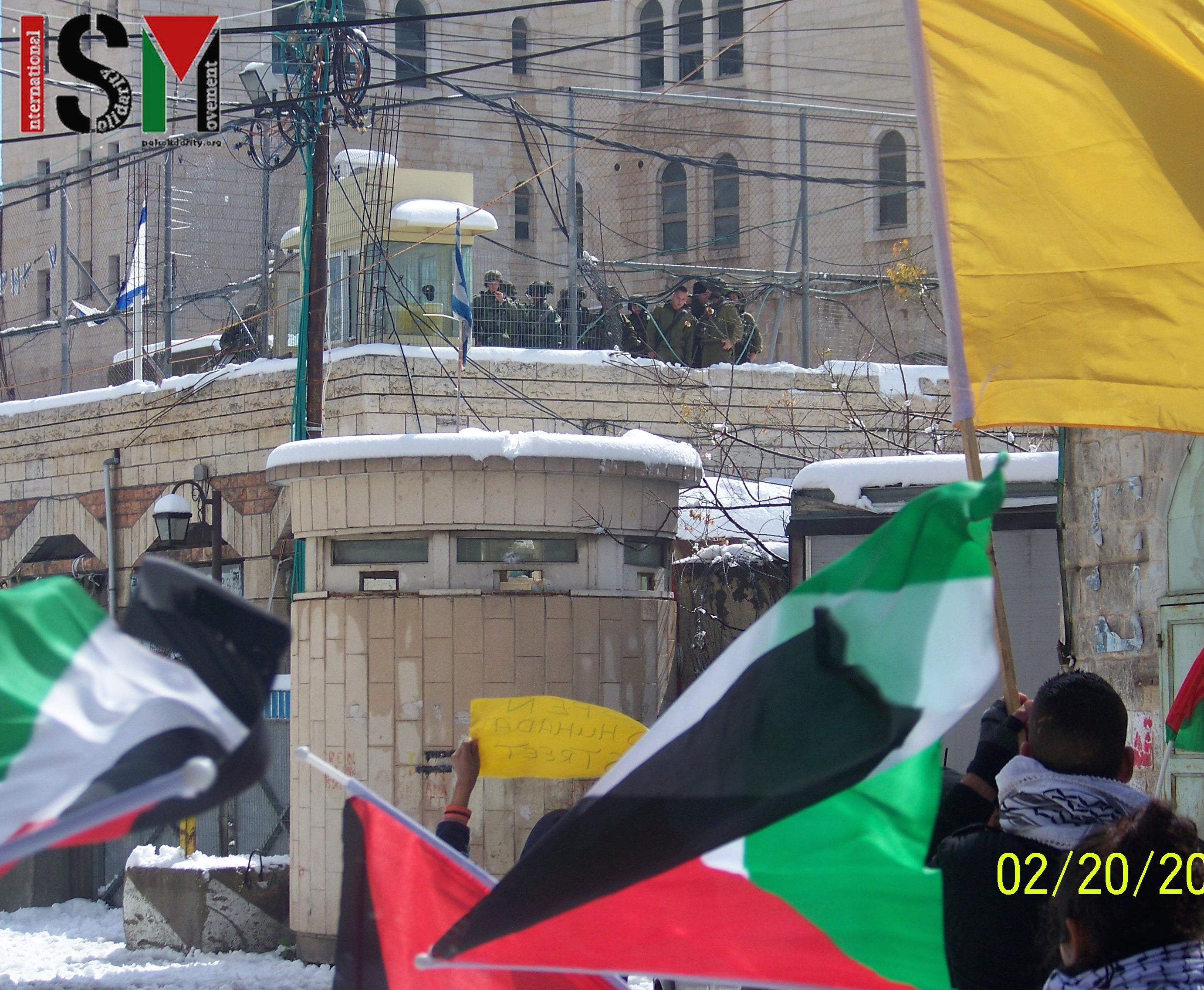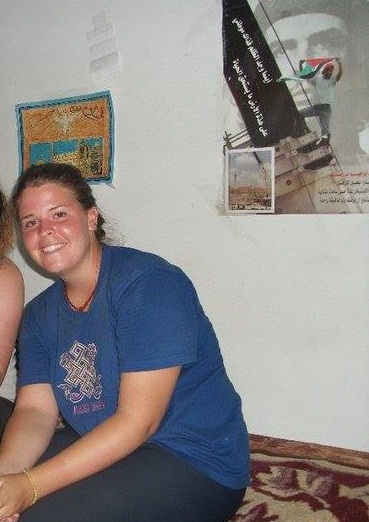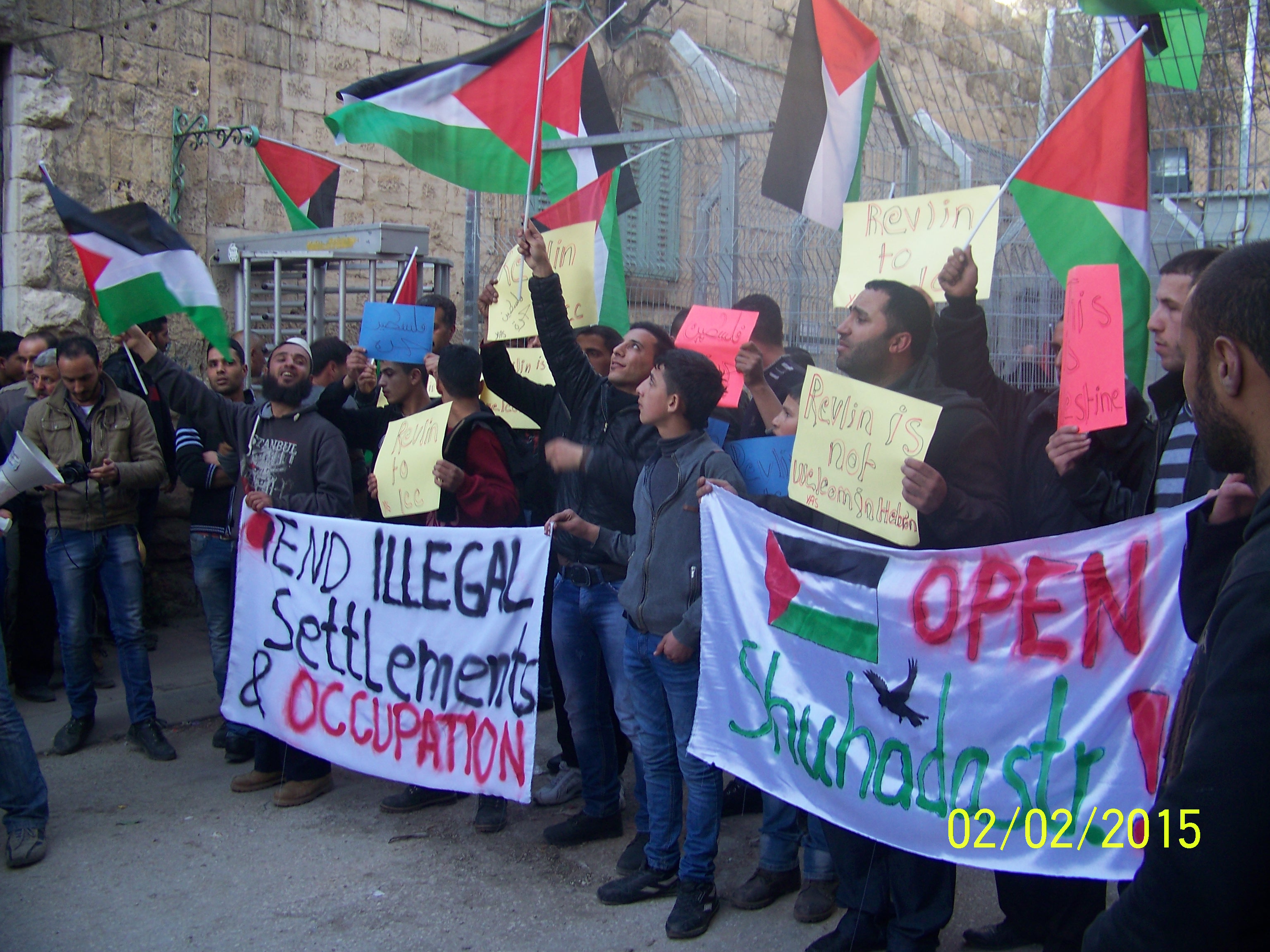Tag: Hebron
-
Open Shuhada Street, demand Palestinian demonstrators
21th February 2015 | International Solidarity Movement, Khalil Team | Hebron, Occupied Palestine On February 20, Israel forces threw at least thirty stun grenades and ten tear gas grenades at a peaceful Palestinian protest. Residents of occupied Hebron (Al-Khalil) were demonstrating against the closure of Shuhada Street, a former economic centre in Al-Khalil. The street, running through the middle of…
-
UPDATED: ISM honors Kayla Mueller
9th February 2015 | International Solidarity Movement | Occupied Palestine Update 10th February 2015: Today, 10th February, Kayla Mueller’s family confirmed she has been killed. Abdullah Abu Rahma, coordinator of the popular committee in the village of Bil’in where Kayla joined the protests, told ISM: “Kayla came to Palestine to stand in solidarity with us. She marched with…
-
Demonstrators face military violence for protesting Israeli President Rivlin’s visit
5th February 2015 | International Solidarity Movement, Khalil Team | Hebron, Occupied Palestine On Monday, February 2nd, Palestinian demonstrators faced military violence at the hands of Israeli forces in occupied Al-Khalil (Hebron). Protesters gathered in Bab Al-Zawiye, on the H1 (Palestinian administered) side of Shuhada checkpoint, to denounce Israeli president Reuven Rivlin’s visit to the illegal Israeli settlement of…



